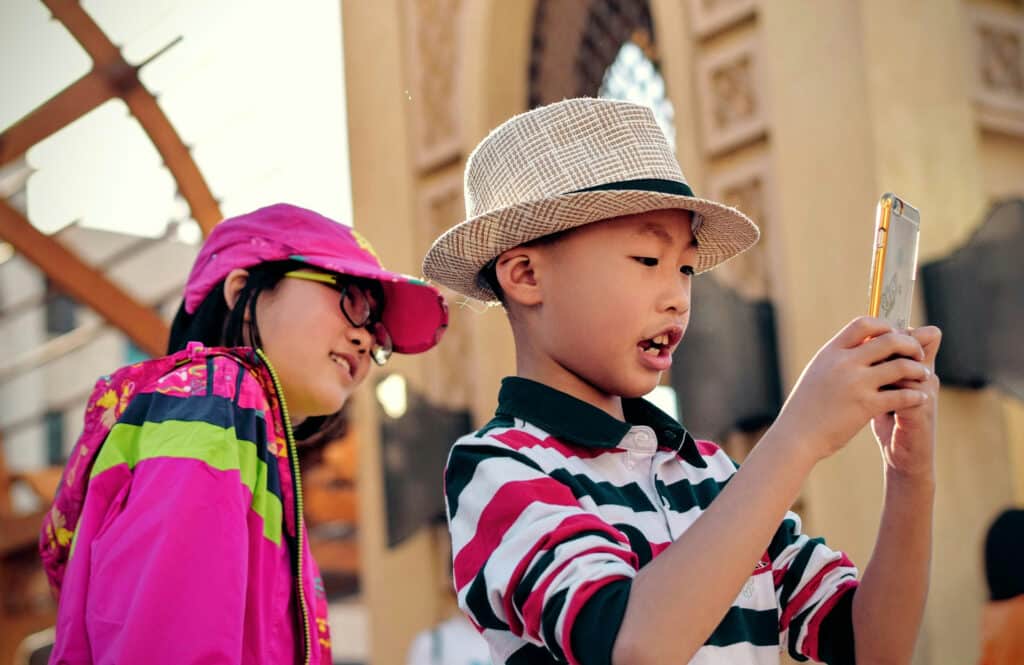Forced displacement is a global crisis that grows every year. In the face of these conditions, sympathy toward displaced people is often overshadowed by fear and concern about security, economics, and culture. As the global refugee crisis worsens, Christians need a perspective that considers Scripture and political realities and can be applied at the local church, national, and international levels.
In Refuge Reimagined, Mark R. Glanville and Luke Glanville present a compassionate approach to displaced people based on a biblical ethic of kinship. The authors apply the call of God’s people to compassion and kinship to the complexities of the global refugee crisis, challenging a fear-based ethic and casting a vision for a hopeful and generous way forward. Read below to discover more insights from the authors’ book about forced displacement and the church.
What led to your interest in studying and now sharing about biblical kinship and refugees?
We have been thinking and writing about local and national issues and global justice for refugees for some years. As we discussed refugee issues together a few years ago, we noticed that, on the one hand, Mark was finding that biblical arguments for the compassionate welcome of strangers were often met with the response: but you misunderstand politics. You have not grappled with the conceptual limits and large-scale practicalities of applying this to nations.
On the other hand, Luke found that political arguments offering for a more compassionate approach to refugees were often met with the response: but you misunderstand the Bible. The biblical call to welcome the stranger is not as straightforward as you think.
And so we thought it could be helpful to write a book that addresses each of these responses at once, drawing on our complementary interests and expertise in biblical, missional, and political theology (Mark) and history, political theory, and international relations (Luke).
Your approach to compassion for displaced people is centered on a biblical ethic of kinship. What is a biblical ethic of kinship?
In our book, Refuge Reimagined: Biblical Kinship in Global Politics, we highlight the biblical mandate for a thick form of kinship with the displaced, a kinship that embraces and enfolds vulnerable strangers into church communities and national communities, a deeply relational kinship.
A biblical ethic of kinship is unfolded throughout the biblical story. We see it, for example, in the so-called Golden Rule, Jesus’ command: “You shall love the Lord your God . . . and your neighbor as yourself” (Mark 12:30; Matt. 22:37–39; cf. Luke 10:27). The “love” language found in the Gospels here derives from kinship language. “Love” means to enfold and protect another person as one would a family member. It means to live in solidarity with someone who needs it, as makeshift family.
Of course, Jesus didn’t invent this command. Rather, he interprets the Old Testament law as fulfilled in his own life and ministry, as he gathered a faithful remnant, an eschatological Israel. With these words, Jesus is echoing the Pentateuch’s teaching on those to whom kinship-love is due under the covenant. Kinship-love is due to God (Deut. 6:5), to one’s neighbor (that is, one’s kinsperson; see Lev. 19:18), and also to the stranger (the outsider who is to be enfolded as kin; see Lev. 19:34; Deut. 10:18). These three kinship-loves are interdependent, expressing an organic covenant life that is emphatically oriented toward others and in particular toward the weakest among us.
What are some of the global conditions that may lead to an increase in the amount of displaced people in the coming decades?
The global number of forcibly displaced people has been increasing by millions each year for many years now, to the point that presently 80 million people find themselves displaced by persecution, violence, human rights violations, and events that seriously disturb social order. Many of these problems are becoming more drawn out and intractable: civil wars are lasting longer, displacement-generating natural and human-made events are occurring more regularly. And climate change already exacerbates these problems — and will likely continue to — as it amplifies food and water insecurity and contributes to triggering or prolonging armed conflicts in various parts of the world.
The refugee crisis is intertwined with many vast and complex issues. Where is a good place for people to start becoming informed if they feel overwhelmed by the subject?
The website of UNHCR, the United Nations Refugee Agency, offers insight into the vitality and resourcefulness of people on the move. It has up-to-date information on global conflicts that cause displacement as well as creative responses. For an orientation to engaging the topic thoughtfully, take a look at the film, “Borderstory,” produced by Erin Goheen Glanville (24 minutes).
How might you respond to those who believe that tackling the issue of refugees is too political or idealistic?
In response to the charge of being too political, we suggest that the mission of God surely includes within its scope not only the church but also the nation and indeed the world. Through Scripture, we discern God’s desire not only for Christ-followers but also for nations, and we thereby discern what the Spirit is longing to restore, and is busy restoring, in the world. Mission is the encounter with the world of a community gathered by Christ to be caught up in the Father’s reconciling purpose for all of Creation. We should strive, then, to seek to discern God’s reconciling purpose for the nation and the world concerning refugees and other displaced people.
In response to the charge of being too idealistic and the suggestion that we should argue for more “realistic” and incremental change, we acknowledge that there can be a time and a place for seeking to nudge reluctant communities and their leaders toward more compassionate rhetoric and more generous policies toward refugees; a time and a place for pursuing marginal gains in the direction of justice. But we take as the task of our book to examine God’s vision for how communities should engage with displaced outsiders and to explore how this vision might ideally shape the actions of church, national, and global communities today. Our book is idealistic in the sense that God’s desire for human society is so much more beautiful than the present reality. Only once we comprehend the ideal can we know what we ought to strive for by the power of the Spirit.
One of your chapters is titled “Relinquishing Fear, Nurturing Compassion, Institutionalizing Love.” What are some steps we can take to foster a more loving and compassionate, less fearful approach to the refugee crisis?
A first step is to cultivate tenderness (Mark 1:40-41). Some of us live close to refugees, and some of us don’t. Yet, all of us live nearby to struggling single parents, aging seniors, people who are lonely, mentally ill, addicted, anxious, hungry, or depressed. Indeed, are we not all broken in some of these ways?
Is Christ inviting you into a time of discernment around ways in which you might express the tenderness of Christ? For example, are you being called into your local school to assist children who need help in reading? Is your church being called to start a program to offer meaningful work for underemployed people in your neighborhood? Is Christ leading you to be a companion to lonely people in your church, lonely people like you? Are you being called to care for the creation, our common home? Our tenderness is a sign that the Spirit of Christ is moving among us (Phil 2:1).
A second step toward creative kinship is sharing life in diversity, as we explore in chapter five of our book. Both as households and as churches we need to remodel our kinship circles around the example of Christ. How can your worshiping community begin to reflect the diversity of your neighborhood? Do you need to sing in other languages? Do you need to prioritize those with little as you set your table, as Christ did? Do you need to contemplate a broader range of issues than your preaching and Bible studies tend to address?
A third step is learning with others. Perhaps some friends would join you in a book group, for example.
What can the church learn from our displaced brothers and sisters around the world?
Can we tell you a story from our book? Both of us are Australian, though Mark resides in Vancouver. Our book describes how people arriving by boat to seek asylum in Australia are mandatorily detained in facilities on Manus Island and Nauru. We speak about the injustice of this policy and the harm that it does to already vulnerable people.
Our friend, Ebony Birchall, is a gifted and compassionate Christian lawyer in Sydney, Australia, who uses her professional skills in solidarity with refugees. Birchall both serves these refugees and considers working with refugees to be a gift. For example, when she expressed compassion to one Christian refugee, the man said to her: “Don’t worry. I know that the Australian Government isn’t the most powerful thing in the world. I trust in God, and I know that this will end.”
Birchall was struck in that moment by the contrast between the many Australian Christians who support this policy and this man who is still pointing to God amidst the suffering of detention. She reflects: “There is a gift in knowing that life isn’t about buying a house and going on holidays. It is this work that gives me joy and fulfillment. This is the sort of thing that builds my character and my faith in God.”
The truth is, there are more Christians in the global south than in Western nations. Many Christians are coming to Western nations as refugees — the gospel is coming to us! A greater spiritual passion and vitality often characterize churches birthed by refugees.
How can the church best serve displaced people in their communities?
If you have this opportunity for a relationship with newcomers, engage humbly, anticipating that you will transform and enrich each other just like two friends would. Be curious as to how ‘helper’ dynamic might be flipped. Ideally, we were both giving and receiving. This is one step on the road toward friendship, which is something that all of us need to flourish. Here are three ideas:
1. Reach out to a refugee resettlement organization within your community, such as World Relief. The map of all resettlement orgs is found here.
2. Reach out to a pastor of a church in your community that worships in a language other than English, build a relationship and look for opportunities for fellowship and mutual encouragement
3. In the current context where many children are arriving alone, there’s a significant need for families willing to become licensed foster families.
Finally, we can always pray. Pray that God would draw refugees to himself through Jesus. Ask him to use you and your church to help meet their needs, both physical and spiritual. And pray that the Father would comfort, protect, and encourage refugees in the midst of circumstances that are often difficult.
Refuge Reimagined can be purchased here.







